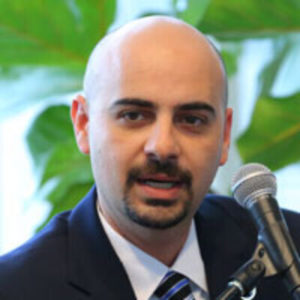By Ari Morgenstern

(JNS) The horrors of Nazi concentration camps did not materialize from thin air. Neither did the shootings in Poway, Calif., or Pittsburgh, Pa.; nor did the hostage-taking in Colleyville, Texas. As the late Holocaust survivor and educator Irving Roth often said: “It began with words.”
We must heed that warning now—here in the heartland and from coast to coast—and admonish the poisonous language that inspires hatred.
Perhaps with Colleyville, those who enable and inspire antisemitic violence will finally be held to account. Social media, for example, has lit up with condemnations of the Council on American-Islamic Relations (CAIR), which in November held a press conference calling for the release of the convicted terrorist who inspired the hostage-taking, Aafia Siddiqui.
CAIR couldn’t care less about Siddiqui’s multiple violent felonies, including attempted murder, her significant reported ties to Al-Qaeda or her antisemitic courtroom outbursts. Its clumsy attempt at damage control may satisfy some in the media, but would-be hostage-takers understand what community leaders want. It is no coincidence that just weeks before Jan. 15, a CAIR executive railed against “Zionist synagogues.” It begins with words, but it never ends there, and CAIR is hardly the only guilty party.
The modern American political lexicon begets violence. The cottage industry of hateful advocacy groups justifying, defending or sharing the goals of violent people while paying lip service to nonviolence is growing. We must understand the weight of the words that antisemites—be they white supremacists or radical Islamic supremacists—are clinging to and recognize that all people are nonviolent up until the point that some people are violent.
Violence was a foreseeable conclusion to the campaign to free the terrorist Siddiqui. Likewise, the obscene antisemitic tropes advanced by certain fringe Congress members (from both parties), and the relentless demonization of Jews and Israelis by a wide array of groups in the United States will ultimately not end with words; it will inescapably conclude in violence. To stop future attacks, we must hold those who make antisemitic statements accountable for the violence sparked by their words, as well as those who defend or ignore the ever-growing chorus of bigots who hold power and bully pulpits.
The tragic reality is that some who hear words demonizing Jews will believe what they’re being told. Among that population, some will merely hate Jews in their hearts; others will shout their hatred from the rooftops; and a few will pick up a weapon.
Those who shield antisemites because doing so is increasingly fashionable or politically expedient share in the sins of the bigots they defend. Those who are silent when evil words are spoken are guilty of cowardice. And when the next horror flashes across our screens, none of these—not the bigots, nor their defenders nor those who were silent—should think themselves blameless. They are all accountable for the evil they have wrought.
Silence and obfuscation are interpreted as consent and agreement. As a result, being an American Jew today means living with the risk of being demonized, victimized and terrorized. We must change that reality. And that, too, begins with words.
When Americans speak up to the voices of hatred inspiring antisemitic violence, some of those who hold hatred in their hearts will think again. Using our words is the only way to turn back the tide of antisemitism. Now is the time for Americans to internalize the warning of anti-Nazi dissident Dietrich Bonhoeffer’s message that “silence in the face evil is itself evil.” It’s time that all Americans publicly and unequivocally reject antisemitism at every turn. The lives of our fellow countrymen depend on it.
*
Ari Morgenstern is the senior director of policy and communications for Christians United for Israel. Preceding provided by JNS.org